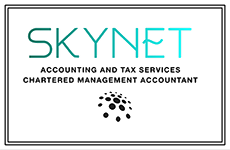Uber drivers are workers
The Supreme Court has unanimously upheld an employment tribunal’s decision that Uber drivers are “workers” for the purpose of rights under the National Minimum Wage Act 1998, the Working Time Regulations 1998 and the Employment Rights Act 1996. What are the wider implications of this decision for employers?

Employment v Self-employment
Uber regards its taxi drivers as running their own self-employed businesses and so doesn’t provide them with any employment rights. This was challenged by several drivers who sought to argue before the employment tribunal that they were really “workers” and not self-employed. The employment tribunal, Employment Appeal Tribunal and Court of Appeal all ruled in their favour, so Uber appealed to the Supreme Court, which has now agreed with the lower courts. This means Uber drivers are now entitled to a range of basic employment rights that come with worker status, including paid annual leave and the national minimum wage.
Bigger picture
What is of wider interest here to any employers that engage purportedly self-employed contractors is that in reaching its decision the Supreme Court emphasised that the determination of worker status under employment legislation is a question of statutory interpretation, not one of contractual interpretation, and therefore it’s wrong to treat the written contractual terms as a starting point. If a business uses self-employed contractors, the written contract they’ve put in place to describe them as such isn’t going to count for much if employment status is challenged. What will actually matter is the true nature of the relationship between the business and the individual regardless of the wording of the contract. The greater the control the business exercises over working arrangements and the more the individual is dependent on it, the stronger the case will be for classifying them as a worker.
Related Topics
-
Simpler Recycling rules take effect
New rules on how workplaces must sort their waste and recycling have taken effect from 31 March. What are the key changes to be aware of?
-
New CGT reporting tool
Self-assessment returns aren’t set up for the change in capital gains tax (CGT) rates on the government filing system and will require a manual adjustment for 2024/25 to ensure the correct amount is paid. Why is there a problem and can a new online tool help?
-
MONTHLY FOCUS: THE ENTERPRISE INVESTMENT SCHEME QUALIFYING CONDITIONS
The enterprise investment scheme (EIS) is a generous collection of tax reliefs aimed at encouraging private investment into relatively young companies. In this Focus, we look at the qualifying conditions relating to the investor and the issuing company that must be met in order for a claim for relief to succeed.





 This website uses both its own and third-party cookies to analyze our services and navigation on our website in order to improve its contents (analytical purposes: measure visits and sources of web traffic). The legal basis is the consent of the user, except in the case of basic cookies, which are essential to navigate this website.
This website uses both its own and third-party cookies to analyze our services and navigation on our website in order to improve its contents (analytical purposes: measure visits and sources of web traffic). The legal basis is the consent of the user, except in the case of basic cookies, which are essential to navigate this website.